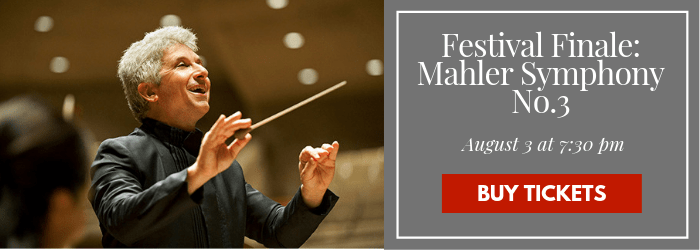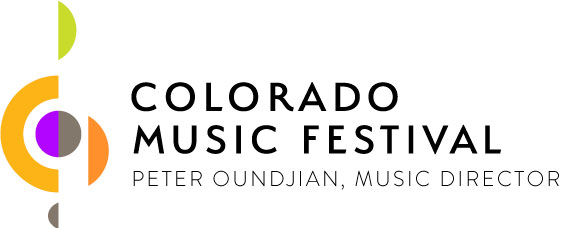by Marc Shulgold
For Janice Chandler-Eteme, the journey to learn her solos in Mahler’s mighty Symphony No. 3 has been one of months of preparation – all to fully understand two movements whose texts seem to appear simple and, in parts, almost naïve.
She is listed as a mezzo for the Colorado Music Festival’s season-ending concert on Saturday, August 3. But for most of her busy career, Eteme (pronounced Eh-TEM-ay) has sung soprano parts, predominantly in orchestral programs. “I wouldn’t say my voice has changed,” she said, “but lately I am finding myself more comfortable in a lower range. But I’m still OK in the soprano repertory – I can still reach high C and D-flat.”
Singing the notes is one thing, matching them to the wide emotional range of Mahler’s text is quite another matter. Reaching a secure place in performing the fourth and fifth movements of the Third Symphony proved to be a serious challenge for Eteme, who will be singing this work for the first time.

“In other Mahler Symphonies that I’ve sung – the Second and Fourth in particular – you have to bring a poignancy and simplicity to the voice. That’s also true of the Third, which I see as a walk-through about Creation. There is a simplicity here, but not in a childish way. You have to take time to allow the simplicity to show. This is music that speaks from the heart.”
After a very lengthy opening movement (during which Eteme hopes to rest and prepare backstage), the Third moves to a pair of vocal movements that seem miles apart in their texts. The fourth is an excerpt from Nietzsche’s heavily philosophical Also sprach Zarathustra, a “Midnight Song” that comments on our endless search for joy. What follows is a brightly colored piece featuring a children’s choir imitating the sound of bells, and a brief tale depicting a conversation between Jesus and his disciples. In all, these two segments last about 15 minutes. For Eteme, learning her parts was a long, multi-step process. “First, I looked at the full score, because I believe you have to examine the whole thing. Then, I listened to several recordings – Jessye Norman’s in particular. Finally, I started singing it, finding that place were I can really feel it. I’m sure that when he was writing it, Mahler spent a lot of quiet time, to be in touch with his feelings. The fourth movement is a series of deep waves of sound, and it has a way of pulling the sound out of you. So, it’s important to really listen.”
Standing so close to the huge orchestra and chorus, which will be led by Festival music director Peter Oundjian, must be an overwhelming experience for the soloist. Might she worry about getting lost in the sheer beauty of the accompaniment?
“No, when I’m onstage I’ll be listening, focused and ready to do my job.”
Some singers prefer to work without score – but not Eteme. At least, not here. “When you’re off-score, it does give you a certain freedom. I’ve done that with the Brahms (German) Requiem, but I won’t attempt it this time. Not after what happened when I sang in Mahler’s Eighth at Bard College. I made the mistake of taking my eyes off the score, trusting my memory. Then, I came in at the wrong place! I’ll never do that again, I promise.”
Peter Oundjian will conduct the Festival Orchestra, St. Martin’s Festival Singers, Boulder Children’s Chorale and mezzo-soprano Janice Chandler-Eteme in Mahler’s Symphony No. 3. The concert will take place in Chautauqua Auditorium at 7:30 p.m. Saturday, August 3. Information: (303) 440-7666 or ColoradoMusicFestival.org.
